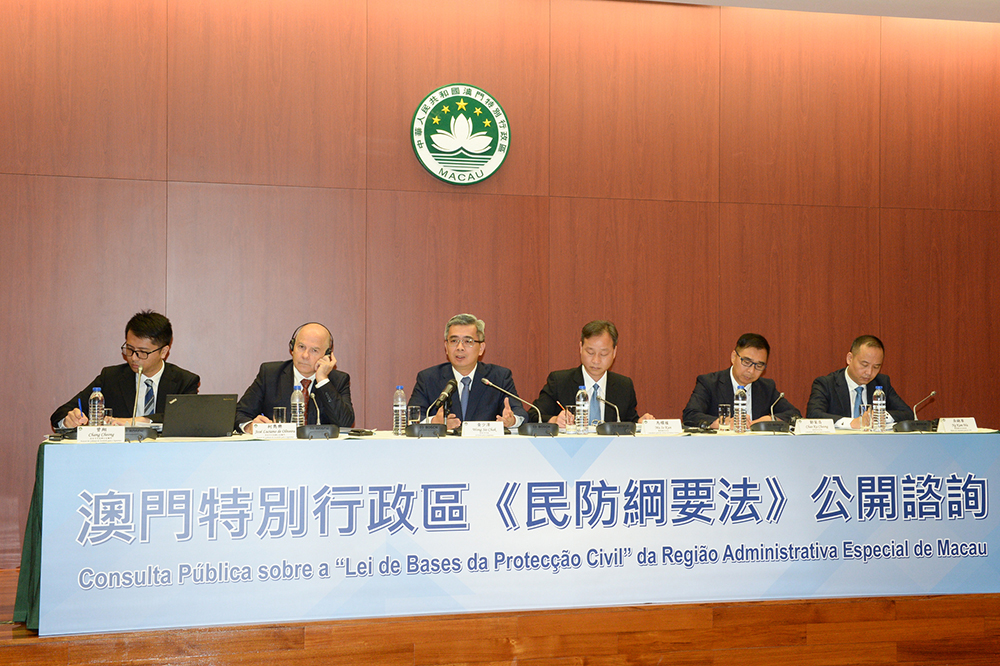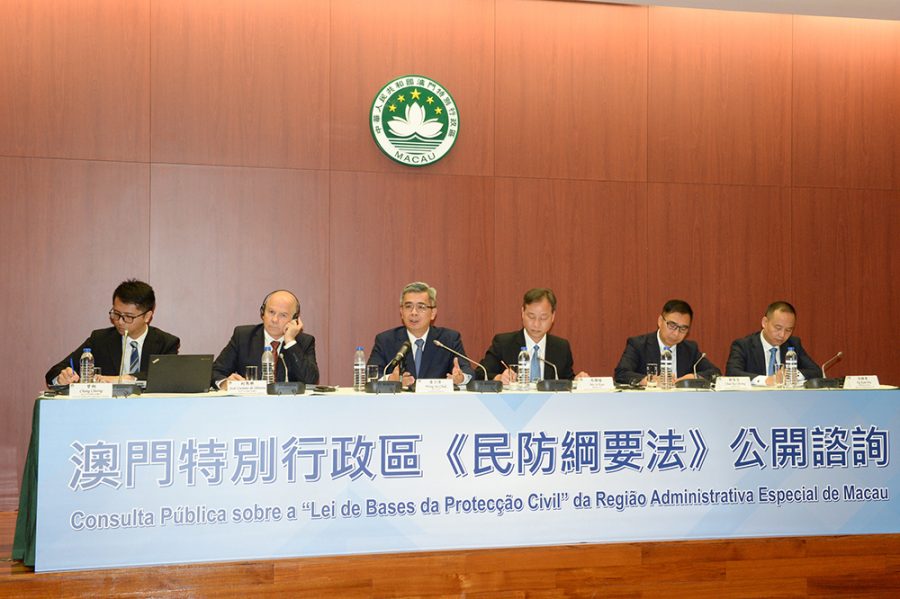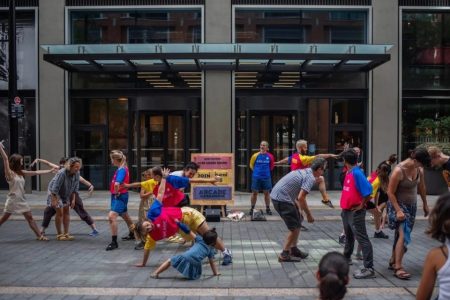The government Thursday launched a 45-day public consultation on the drafting of a new civil protection framework bill, with the aim of allowing the government to better respond to “unforeseen public incidents” – such as typhoons, other natural disasters and major accidents.
The bill proposes that the chief executive can order the closure of border checkpoints as well as the suspension of casino operations when “unforeseen public incidents” hit the city.
The bill also proposes a new category of crime for spreading rumours during a state of emergency declared by the government. The bill proposes that offenders face a prison term of up to three years.
A press conference about the public consultation was held at the Sao Francisco Barracks. The consultation will end on August 11. Three public sessions will be held during the consultation period.
According to the public consultation document, the government proposes that the new civil protection framework law replace the existing decree-law regulating the government’s civil protection system and tasks promulgated back in 1992 when Macau was still under Portuguese administration.
According to the consultation document, the bill proposes that “unforeseen public incidents” be divided into four categories, namely natural disasters, major accidents, public health incidents, and public security incidents. The first category includes meteorological disasters, while the second category includes traffic accidents and nuclear accidents.
According to the document, the third category includes epidemic outbreaks and food safety incidents, while the fourth category includes terror attacks.
The document says that for ensuring the safety of residents and tourists alike in the city, the bill proposes that the chief executive can order the closure of particular border checkpoints when “unforeseen public incidents” hit the city, and that this power can only be exercised by the chief executive and cannot be delegated to other officials.
The bill proposes that when such incidents hit the city, the chief executive can also order the suspension of casino operations and other large-scale events, according to the document.






